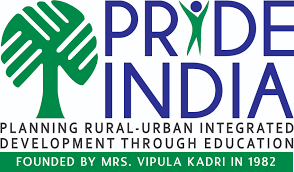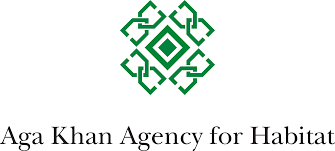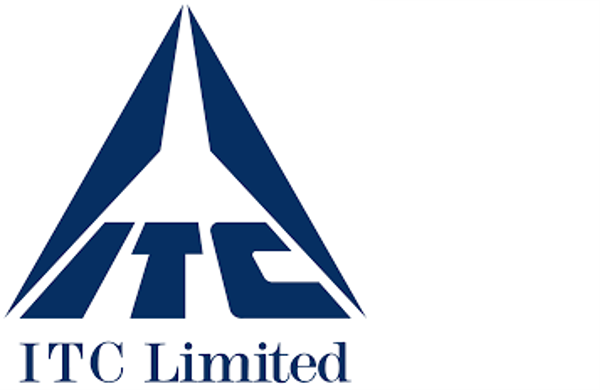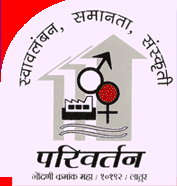
Sudhagad, located in Maharashtra's Raigad district, is among the 15 talukas in the region, comprising 98 villages and a town. Unfortunately, the area faces significant challenges, lacking essential amenities such as water, energy, toilets, and schools. Despite government interventions in development planning, progress is hindered by the extensive nationwide coverage required. In response, PRIDE India aims to positively impact marginalized communities in Sudhagad, fostering lives of dignity and self-respect. The organization intends to implement its Ideal village program in Mahad taluka, in the Sudhagad Pali Block. This initiative encompasses comprehensive village development, spanning health, education, livelihoods, and community development. To plan effective interventions, PRIDE India collaborated with Renovate India, conducting a community needs assessment study that involved 1194 samples of households, including key informants like Anganwadi workers and school teachers. The survey used questionnaires to gather qualitative insights, employing a process comprising desk review, data collection, field visits, data analysis, draft review, and documentation. Study findings highlighted major challenges, including unhygienic behavior and poor sanitation leading to prevalent diseases. Gendered time poverty was identified among women due to the time spent fetching water. Approximately 15% of respondents faced drinking water scarcity, with around 40% consuming untreated water. Notably, 83% preferred private health services over government facilities. Anganwadi centers lacked basic infrastructure. 95% of respondents disposed of their garbage in the open due to the absence of proper waste management. Addressing these issues is crucial for transforming these villages into ideal communities, and the study serves as a foundation for targeted interventions to improve the quality of life in Sudhagad.

Education is a key to an individual’s social and economic growth, contributing to the economy by imparting essential skills. Primary education, in particular, lays the foundation for labor capabilities, serving as a powerful tool for poverty alleviation and socio-economic development. A pivotal moment in India's educational landscape was marked by the inclusion of Article 21-A in the constitution, declaring 'free and compulsory primary education' as a fundamental right. The recent shift to online education during the lockdown posed challenges, especially in rural areas lacking the necessary infrastructure for immediate digital transformation. The Government of India initiated various programs like PM e-VIDHYA, DIKSHA, SWAYAM, SWAYAM PRABHA, and O-LABS. However, students in rural areas face hurdles in accessing and utilizing these digital resources due to a lack of tools and technology. The Pratham InfoTech Foundation (PIF) addresses this gap through its Digital Learning Program, Majhi e-Shala, which aims to instill a positive approach and encourage teachers to integrate new technology into their teaching methods. This study, employing the interview method with a sample size of 614 school principals, 60 teachers, and 180 students, seeks to comprehend the current teaching practices and school infrastructure in various ZP schools. Major findings highlight a low student-teacher ratio, declining enrollment, inadequate digital devices, limited internet connectivity, a dearth of content in regional languages, and teachers lacking digital skills. Urgent interventions include upgrading digital infrastructure, providing teacher training, and making content available in regional languages to facilitate a seamless transition to e-learning.

The impact of industrialization on traditional artisans, particularly leather craftsmen in the Chamar caste, has led to a decline in their livelihoods, facing stiff competition from multinational companies. Despite the CSR Act of 2013 mandating companies to allocate 2% of profits to CSR activities, major Indian footwear brands focus on education, health, and the environment, neglecting the upliftment of cobblers. To address these challenges, various central and state-level schemes, skill development institutes, and startups like "Shoe Drop" and "Indosole" have innovated in the footwear industry. Internationally, Nike and Adidas prioritize sustainability, using recycled materials, and combating pollution. This need assessment study delves into the socio-economic conditions of the cobbler community in India, aiming to shed light on their challenges and propose solutions to enhance living standards. The descriptive study gathers detailed quantitative and qualitative data through individual interviews and FGD involving 30 cobblers, 10 vendors, and 5 NGOs. Key findings reveal that women in the cobbler community are primarily housewives, suggesting the creation of women's SHGs to encourage small-scale businesses. The community's low-saving culture can be improved through financial management sessions, addressing the lack of awareness about government schemes through awareness sessions. Encouraging children to enroll in government-offered courses, redesigning kachcha workstations, and linking cobblers to existing government schemes, microfinance institutions, and low-interest loans from banks can further enhance their socio-economic conditions and minimize dependency on vendors.

India, with a population exceeding 1.1 billion, emphasizes housing as a crucial facet of its development. Housing, habitat development, and environmental factors are pivotal in the country's business and developmental goals. The Aga Khan Agency for Habitat (AKAH) addresses global housing needs, focusing on a research study to review existing housing finance models for home renovation in India. The study analyzes state and central-level housing programs, schemes, and redevelopment models, including financing for individual home improvements and renovations in older communities. The study aims to assess India's housing sector performance, considering demand and existing financing options across income groups. The goal is to design and pilot-test a suggested financing model in Maharashtra and Gujarat. Simple random sampling was employed, using both primary (collected through personal interviews) and secondary data (from published and unpublished sources). The study reveals a need for improving loans for home improvement, as most of the existing banks do not have policy regarding this despite a market demand. An evident gap exists in the market for financing home improvement loans, with no bank or institution addressing this issue. Home improvement loans, alongside home loans, are seen as a solution to establish a robust housing system and develop the best habitat in India. The report underscores the necessity of establishing an effective market system to ensure equal access to comfortable and sufficient housing for all citizens in need. The focus remains on contributing to the broader goal of creating an egalitarian housing landscape in India, emphasizing the relevance of home improvement loans in achieving this objective.

Rural development, especially in developing countries like India with 70% of its population residing in rural areas, is a crucial concern. The distribution of the tribal population is uneven, with Madhya Pradesh leading at 14.7%. Gujarat, with an 8.6% tribal population, exhibits distinctive rural-tribal characteristics in districts like Surat and Dangs. The study emphasizes the need for a nuanced understanding of rural-tribal dynamics, particularly in areas like Valsad district of Gujarat. This study focuses on the challenges faced by tribal communities, a particularly disadvantaged group of Warli community. The study employs simple random sampling to select the sample.. Data collection involved semi-structured interviews, incorporating both closed and open-ended questions across 101 households. To ensure accessibility, questions were simplified and presented in Hindi. The study's focus on two villages, Chandvegan and Veribhavada, brought to light critical findings in water access, livelihoods, health, education, and women's empowerment. Notably, the absence of tap water places a burden on women, revealing societal patriarchal tendencies. Agriculture remains the primary livelihood, and education, particularly for girls, faces challenges due to a lack of interest of parents in sending a girl child to the school. In response to these findings, the study proposes recommendations for water resources, livelihoods, healthcare, and agriculture. Specifically, there is a need to construct sustainable water storage facilities connected to households through pipelines to alleviate the burden on women. Improving irrigation facilities for farmers is crucial for year-round crop growth, enhancing livelihood opportunities. Additionally, the study suggests organizing monthly health camps at the village level to improve the health status of women and children.

Sudhagad, located in Maharashtra's Raigad district, is among the 15 talukas in the region, comprising 98 villages and a town. Unfortunately, the area faces significant challenges, lacking essential amenities such as water, energy, toilets, and schools. Despite government interventions in development planning, progress is hindered by the extensive nationwide coverage required. In response, PRIDE India aims to positively impact marginalized communities in Sudhagad, fostering lives of dignity and self-respect. The organization intends to implement its Ideal village program in Mahad taluka, in the Sudhagad Pali Block. This initiative encompasses comprehensive village development, spanning health, education, livelihoods, and community development. To plan effective interventions, PRIDE India collaborated with Renovate India, conducting a community needs assessment study that involved 1194 samples of households, including key informants like Anganwadi workers and school teachers. The survey used questionnaires to gather qualitative insights, employing a process comprising desk review, data collection, field visits, data analysis, draft review, and documentation. Study findings highlighted major challenges, including unhygienic behavior and poor sanitation leading to prevalent diseases. Gendered time poverty was identified among women due to the time spent fetching water. Approximately 15% of respondents faced drinking water scarcity, with around 40% consuming untreated water. Notably, 83% preferred private health services over government facilities. Anganwadi centers lacked basic infrastructure. 95% of respondents disposed of their garbage in the open due to the absence of proper waste management. Addressing these issues is crucial for transforming these villages into ideal communities, and the study serves as a foundation for targeted interventions to improve the quality of life in Sudhagad.

Since 2018, the Center for Sustainable Development, in collaboration with the Maharashtra State Council of Educational Research and Training (MSCERT) and the NGO Leadership for Equity (LFE), has conducted action research in Maharashtra to enhance the quality of education through the integration of Information and Communication Technology (ICT) in schools. Maharashtra State, recognizing the significance of technology in teaching, prioritizes its integration to elevate learning outcomes. To guide investments effectively, the state seeks to identify the most efficient tools and approaches to support schools in filling gaps and optimizing the use of digital technology and resources through the Digital School Survey. The survey was carried out with 1000 schools in Maharashtra through a mix of online and offline in Marathi and English through Survey Monkey. The data analysis provides an overview of ICT integration in Maharashtra schools, revealing that teacher-driven efforts using personal mobile devices and corporate social responsibility initiatives contribute to increased ICT use. The recommendations highlight key strategies for enhancing ICT integration in Maharashtra's schools. Customized resource packages, guided by the government, leveraging CSR efforts for device provision. Encouraging IT industry investment in rural connectivity ensures equitable access. Promoting ongoing teacher professional development, especially through "tech-savvy" training, correlates with increased ICT integration. Clear government guidance on content quality standards, including recommended YouTube channels, supports teachers in selecting high-quality resources. These insights underscore the role of public-private collaboration in advancing information technology in education in Maharashtra.

India, with over 50% of its population in rural areas, echoes Gandhi's belief that true progress lies in village development. Challenges like poverty, unemployment, limited education, healthcare access, and sanitation persist. Gandhi's 18-point mission for Sewagram inspired holistic village development, a goal modern initiatives like MGNREGA, DDAY, NLRM, and PM Awaas Yojana aim for but haven't fully achieved. PRIDE India, active in eight Maharashtra districts across 1040 villages, focuses on holistic community development. In Raigad district's Sudhagad Pali block, their Rural Development Program, funded by Mahanagar Gas Limited, expands to create model villages, aligning with the vision of comprehensive rural development. This baseline study aims to assess vital indicators such as demographics, socio-economic conditions, and governance, providing insights into ground realities to inform targeted interventions. Data collection was conducted through interviews with 741 samples chosen by simple random sampling, ensuring a 95% confidence level and a 5% margin of error. Key findings from the study highlight significant challenges, including 29% of people still living in kutcha houses, 11% without electricity, only 4% reaching graduation level, 37% lacking water tap facilities, around 50% not practicing hand washing after toilet use, and only 4% participating in livelihood training programs due to a lack of awareness. The study recommends addressing basic needs such as water, energy, education, and sanitation. Recognizing education as key to economic and social development, providing education to marginalized communities is crucial to enabling upward social and economic mobility. Additionally, there is a need for awareness programs focusing on health and sanitation to comprehensively address identified challenges.

The Seventy-third Constitutional Amendment Act has been instrumental in establishing local self-governance in rural India through the Panchayati Raj Institution (PRI). Comprising Gram Panchayats, Panchayat Samiti, and Zila Parishads, this three-tiered system is crucial for the development of over half of India's population residing in villages. However, the potential of PRI to drive progress is hindered by a lack of resources. PRIDE India, a Non-Governmental Organization, recognizes the need for comprehensive rural development. In Mahad, Raigad, a baseline study was conducted to assess the village's current conditions, including demographic, socio-economic, and governance aspects. Using a census method with a sample size of 623, the study achieved a 100% confidence level. Semi-structured interviews, including closed and open-ended questions, were conducted through in-depth interviews and Focus Group Discussions (FGD). Analysis of the data revealed insights such as the predominance of the male population, migration for employment to cities, and inadequate toilet facilities for 64 out of 650 individuals. Additionally, 23% of the population exhibited low sanitation and hygiene standards. Education indicators highlighted a gap, with less than 50% of children attending school. The lockdown resulted in significant livelihood loss, emphasizing vulnerability. Basic facilities like electricity, safe drinking water, education, health, sanitation, and hygiene were lacking for a substantial portion of the population. Addressing these issues is imperative for achieving holistic village development and improving residents' daily lives. PRIDE India's holistic approach, spanning education, health, livelihood, disaster relief, and women empowerment, is pivotal in creating sustainable change in marginalized rural communities.

India's Constitution underpins laws and welfare for social issues, yet challenges persist, including poverty, hunger, gender bias, and illiteracy. The 2009 Right to Education Act strives for free education, but implementation gaps affect vulnerable groups. The Integrated Child Protection Scheme aims to safeguard children, with a Maharashtra-focused study assessing RTE Act implementation in rural schools and scrutinizing ICPS through government bodies, highlighting the need for impactful execution. The study aims to assess implementation of RTE Act and to study the impact of school closure on children. The study delves into six districts of Maharashtra, assessing RTE Act implementation and studying the impact of government school closures on children. Through the questionnaires, data is collected from 127 primary and secondary schools, encompassing various committees and bodies. The findings uncover significant challenges in education and child protection, including a lack of secondary schools contributing to student dropouts, insufficient classrooms affecting educational quality, and health risks associated with inadequate water facilities. Teacher training awareness gaps and issues within child protection committees under ICPS, such as funding shortages and inactivity, further highlight systemic shortcomings impacting children's well-being. Recommendations underscore the need for maintaining open schools, improving infrastructure adherence under RTE, promptly filling teacher vacancies, allocating budgets for training, and extending RTE age limits. In child protection, urgent appointments, state-level gap analysis, budget allocation for training, timely fund distribution, and efficient monitoring are proposed. The call for state-level studies, appointments, and evaluations emphasizes the imperative for comprehensive improvements in both education and child protection mechanisms, addressing the systemic challenges revealed by the study.

The initial years of a child's life are crucial for the development of cognitive, physical, social, and emotional abilities. Recognizing this, the Indian government has centered its child development programs, such as Integrated Child Development Services (ICDS) and Early Childhood Development (ECD), around these principles. However, gaps in program implementation impact outcomes. United Way Delhi (UWD) addresses these gaps through innovative initiatives like "NEEV" (Seed establishment), a three-year project focusing on ECD awareness and campaigns in Pune, Maharashtra. The project targets communities where UWD has a presence. A baseline study by UWD in Pune explores ground realities in 238 Balwadis and 12 Anganwadis, utilizing field data collected through in-depth interviews with teachers and beneficiary children. Findings reveal the necessity for infrastructural improvements, including playgrounds, classrooms, and developmental materials. Identified issues include low teacher training frequency, limited child attendance, and inadequate community involvement. Over 50% of Balwadis lack teaching staff, and 58% report daily child attendance between 50% and 75%. Recommendations highlight addressing teacher motivation, incorporating digital media in education, and upgrading infrastructure and learning materials. The study emphasizes early enrollment for optimal child development and calls for increased awareness. In conclusion, the study offers insights into Anganwadis/Balwadis in Pune, guiding future strategies for the overall development of enrolled and potential children. The recommendations underscore the pivotal roles of teacher motivation, technology integration, and infrastructure enhancement in ensuring the success of early childhood development programs.

India bears one of the world's highest deaf populations, with around 6% grappling with hearing loss, and a notably higher rate of four out of every 1,000 children born deaf, surpassing global averages. Pioneers in SSC education up to the 10th standard for hearing-impaired children, Stephen High School, operated by the Montford Education Society, spearheads efforts to address this challenge. This report scrutinizes the accomplishments of early intervention centers under the Montford Education Society, encompassing art, culture, sports, games, and festival celebrations. It also delves into the challenges encountered during the 2021 academic year, underlining the need for impact assessment to gauge ongoing project consequences. Data, collected via interviews with 80 participants (38 parents, 32 project beneficiaries, and 10 key informants) using simple random sampling, offers insights into two sections. The first elucidates parental and school-related findings, covering factors influencing enrollment decisions, parental socio-economic status, and the school's impact on children. The second section delves into student experiences at Stephen School, addressing changes post-enrollment, challenges in online learning, and effective communication with teachers. The study highlights the roles and responsibilities of teachers and underscores the importance of speech therapy. Key findings include revelations about participant socio-economic statuses, positive changes in children, teacher roles, challenges in online learning, and the pandemic's impact on children's socialization. The report concludes with recommendations, emphasizing the initiation of speech therapy and the utilization of diverse therapeutic techniques such as music therapy, therapy dogs, exposure visits, and life skill training.

India gained independence in 1947, evolving into a sovereign nation, despite achieving substantial economic growth and ranking as the world's fifth-largest economy during its 'Amrit Kaal,' contends with persistent poverty, affecting approximately 14.96% of its population. Focusing on Mumbai, a city with a significant slum-dwelling population, where access to basic amenities is often constrained, particularly for women and children, the Niramaya Health Foundation, funded by Wipro Cares, initiated a healthcare program in 2001. This comprehensive initiative, comprising projects such as Aarogyajeevan, Aarogyadisha, and Aarogyasnehi, targets maternal and child health, adolescent health, and nutrition. The study concentrates on a Guilbert Hill slum in Mumbai, with data collected from 626 households through simple random sampling. It assesses demographics, socioeconomic conditions, and various health-related aspects, including healthcare facilities, clean water, sanitation, personal hygiene, maternal and child health, and adolescent health. By comparing baseline and end-line surveys, the assessment gauges the program's progress. In conclusion, the study offers recommendations to address identified challenges, emphasizing the need to raise awareness among women about relevant programs, educate adolescent girls on menstrual hygiene and proper sanitary product disposal, and promote family planning practices. These interventions aim to enhance the effectiveness and efficiency of the Niramaya Health Foundation's program, contributing to improved health outcomes in Mumbai's vulnerable communities.

India envisions becoming the world's 3rd largest economy by 2030 and achieving developed nation status by 2047. However, World Bank data underscores the reality that over 66.46% of the population resides in villages, projected to remain above 50%. Despite the urban development focus, the essence of Gandhiji's words prevails: "India lives in her seven hundred thousand villages." Established in 1982 under the Societies Registration Act of 1860, PRIDE India, supported by Mahanagar Gas Limited, is committed to developing sustainable infrastructure and creating ideal villages. Operating in Maharashtra's Raigad district, an impact assessment study by Renovate India, with 120 respondents through simple random sampling, yielded results at a 95% confidence level and 5% margin of error. Assessment categories included education, health, sanitation, economic status, and community empowerment, revealing heightened education quality, improved health conditions, and a substantial household income increase following interventions. PRIDE India's efforts exemplify a dedicated pursuit of sustainable development and the transformation of rural landscapes in alignment with India's ambitious economic goals. Key findings underscore significant positive changes in all six villages, including encouraging signs of community development, a notable surge in school attendance from 60.6% to 94.4%, and a transition to open defecation-free villages and improved hygiene practices. The noteworthy enhancement in household income is attributed to the financial support and entrepreneurial training provided by Pride India. The study gives satisfactory results of the Integrated Rural Development Project by Pride India, through the model village project, the villages are now on a progressive path aligned with the Millennium Development goals of the United Nations.

Vocational training and education, as defined by the OECD, aims to prepare individuals for specific careers, enhancing both practical and theoretical skills. The practical and theoretical curriculum enhances individuals' skills, making them market-ready. In India, privately owned Industrial Training Centres (polytechnics) and Public Industrial Training Institutes (ITI) offer low-cost, career-oriented programs. This approach appeals to individuals from rural and lower-income backgrounds. With estimates indicating a demand for 20 million workers in the Indian manufacturing industry, vocational training becomes pivotal. Hosanna Ministries targets the destitute rural population in far eastern Maharashtra, focusing on ethnic minority groups. The study's objective is to provide evidence that the project has successfully delivered desired outputs and outcomes, assessing the project's overall effectiveness and resulting changes. The study employs a mixed-methodology approach with simple random sampling for data collection. Findings reveal a higher number of female beneficiaries, a concerning dropout rate among females, and a notable gender disparity in computer and driving courses. While computer courses receive positive feedback, the majority of driving school graduates become employees rather than entrepreneurs. Recommendations underscore the need for personality development and soft skills training. The study advocates for community-wide education awareness and urges the organization to facilitate job placements based on specialization. It also suggests enhancing the curriculum with advanced computer training in areas like data analytics, web designing, and coding. In summary, the research provides evidence of the project's success, emphasizes gender-related disparities, and proposes strategic improvements to better align vocational training with evolving market demands.

The Science Technology Education Program (STEP), led by Seva Sahayog Foundation and SS&C GlobeOp Financial Services India, targeted 59 schools in 19 locations, aiming for holistic student development. Through infrastructure enhancement and digital transformation, joint monitoring ensured program effectiveness. STEP's Impact Assessment evaluates academic performance, increased higher education enrollment, and improved economic conditions via solar panels and mobile repairing vocational training. The study, utilizing qualitative and quantitative methods with simple random sampling, seeks to measure the tangible impact on students' knowledge, emphasizing the project's efficacy in shaping educational outcomes. The findings reveal that 98% of principals and teachers found it very easy to teach using laboratory materials, leading to easy comprehension of concepts by students. Seva Sahayog's donated books significantly impacted students' learning and vocabulary. Vertical vocational training proved successful, with over 80% of participants finding it easy to start their own service provider enterprises. However, the study identifies areas for improvement, emphasizing the need to redefine the list of lab equipment and instruments for experiments. It suggests changing the teaching and training pattern to align with the updated syllabus, increasing laboratory space to accommodate more students, and replacing outdated equipment. Additionally, there is a call for the addition of reading rooms in schools and the expansion of vocational training programs to reach more geographical areas, benefiting needy and aspiring students alike.

The Khelwadi project, implemented in Mokhada Taluka of Palghar district by Parivartan Mahila Sansthan, aims to address the significant education disparities between rural and urban areas. The project's objective is to provide quality education to marginalized communities in rural areas. The impact assessment study was carried out to assess how the intervention under review has affected the outcome. The sample was collected through convenient sampling, further snowballing technique was employed to locate additional respondents. The findings reveal a substantial improvement in students' education and overall personality. Notably, their English, mathematical, and communication skills have progressed, leading to a significant reduction in school dropout rates. The project has also raised parental awareness and involvement in their children's education. Exposure visits, such as visit to the Post Office, Police Station, and Gram Panchayat, have contributed to an increase in general knowledge among students. Moreover, there has been a noticeable enhancement in personal hygiene, indicating a positive change in the students' well-being. The study underscores the project's effectiveness in terms of activity implementation and community engagement. All the stakeholders under the study agreed that Khelwadi fulfills a crucial need within the community, fostering the holistic development of children. The study recommends continued support for the Khelwadi project for a minimum of three years, recognizing its positive impact on education and the overall well-being of students in rural areas.

The PUKAR survey conducted on Mumbai's Lallubhai compound, developed as part of MMRDA's housing scheme for the impoverished, reveals a concerning reality for its 29,000 residents. Despite assurances of enhanced living conditions, the compound falls short on crucial development parameters. The relocation has adversely affected children's schooling, leading to a significant dropout rate due to the absence of nearby schools. In response to this educational challenge, Door Step School intervened in 2009-10, focusing on addressing the educational needs of out-of-school children in the Hiranandani Akruti and Lallubhai Compound areas. This study has a three-fold objective: to assess and provide recent, reliable data on Door Step School's interventions, understand the educational needs of the children, and identify existing alternative services to Door Step School. The study is organized into three parts, each aligned with its respective objective. The first objective employs simple random sampling with a sample universe of 800. Data collection for the second objective utilizes simple random sampling with a larger universe of 7200 samples, while the third objective employs a snowballing approach. The primary tool for data collection is an interview, comprising both open and closed-ended questions. Key findings from the study indicate that 92% of participants acknowledged benefiting from the Balwadi program. The program not only instilled a positive attitude toward learning among children but also addressed enrollment motivations, primarily driven by academic development and poor financial status. The major observed change due to the program was an improvement in study habits. English study classes demonstrated enhanced writing and reading skills, and beneficiaries of the computer center program exhibited improved computer skills.

Indoor air pollution, exacerbated by open fires and solid fuel cooking, poses a significant threat to maternal and child health. Glenmark Foundation, the CSR arm of Glenmark Pharmaceuticals, is dedicated to enhancing maternal and child health. Globally, 3 billion people rely on solid fuels, causing health and environmental hazards. In India, where 87% of rural and 28% of urban households use biomass for cooking, adverse effects on vulnerable groups, especially women and children, are pronounced. Indoor pollution-related morbidities include respiratory infections, COPD, and perinatal issues. Glenmark Foundation underscores the need for development initiatives to address this health and environmental challenge. The study, focusing on Madhya Pradesh and Chhattisgarh, employs secondary data analysis from government databases, archives, and research data. Study found that solid biomass usage, prevalent in a majority of Indian households, contributes to high indoor air pollution, impacting maternal and child health significantly. Mitigation measures involve public awareness, transitioning to cleaner fuels, improved stoves, and enhanced ventilation. CSR initiatives, constituting 14% of CSR spending, prioritize sustainable solutions like clean cooking stoves, awareness campaigns, rural electrification, renewable energy training, and biogas plants. The study recommends a comprehensive approach, emphasizing improved cook stoves. Collaboration with NGOs, training women's groups as trainers, and engaging community stakeholders ensure effective implementation and long-term sustainability. Financial support for research, ongoing initiatives, and public awareness campaigns, including alternative fuel solutions, enhances impact. The Glenmark Foundation's CSR focus aligns with efforts to mitigate indoor air pollution, contributing to global sustainability goals like SDG 2030 by preventing health issues associated with household air pollution.